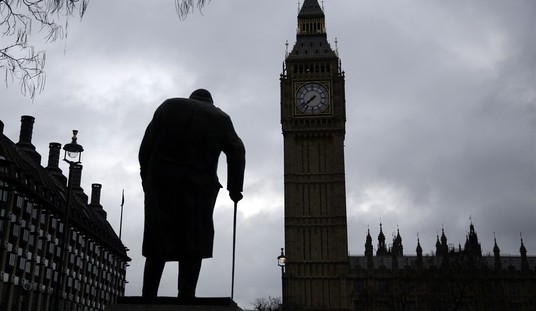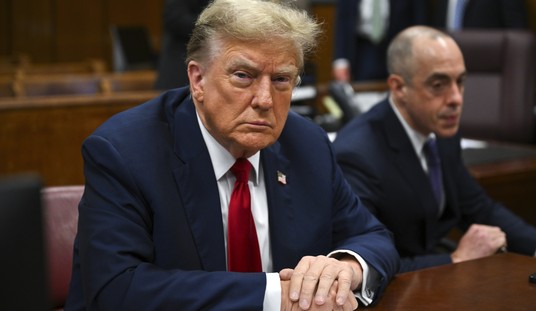In the 21st century, China looks like it could buy the world. With over $3 trillion in foreign currency reserves, China is the largest foreign holder of U.S. debt. Its sovereign wealth fund owns minority stakes in prominent U.S. financial institutions such as Morgan Stanley and the Blackstone Group, and Chinese state-owned corporate behemoths span the globe, gobbling up assets and resources from Australia to Canada, from Southeast Asia to Latin America.
U.S. policymakers know well that Chinese foreign direct investment (FDI) brings jobs and other benefits to Americas weak economy, but many are alarmed by the influx of businesses that seem to respond to Beijings edicts more than they do to market forces. China’s international bad behavior, such as aggressive cyber attacks against Western firms and government agencies, only magnifies the dangers of doing business with Chinas government-affiliated entities.
Nevertheless, U.S. policymakers should not mistake the national security threats that China poses for the economic omnipotence of Chinese firms. In a world of intense global competition, and frequent hyperventilation about America’s impending decline, avoiding an inclination to overestimate or panic over the prowess of Chinas state-funded endeavors may be difficult, but would also be sensible.
Just because China is not hesitant to harness market forces to serve its authoritarian objectives does not mean the market will play along. If the road to hell can be paved with good intentions, then the path of unintended consequences could certainly be designed by Chinas state directives.
In the past decade, the international reach of Chinas economic and financial might has been on broad display. Beijing has invested heavily in U.S. dollar-denominated assets, and as of January 2013, it held $1.26 trillion in U.S. Treasury securities, more than any other foreign country. China’s outward direct investment has grown dramatically as well. According to the Rhodium Group, a New York-based consulting firm, Chinese companies, whose investments in the United States were negligible throughout the 1980s and 1990s, closed deals here totaling $6.5 billion for the year 2012, and are expected to send more than $1 trillion of investment capital out of China by 2020.
The onslaught of Chinese investment appears real enough when private Chinese companies snatch up Western name brands such as IBM ThinkPad, Volvo, and AMC Theatres, but Chinas state-owned enterprises (SOEs) are the ones that have been making the headline-grabbing mega-purchases around the world. According to the Heritage Foundation’s China Global Investment Tracker, a database of large overseas Chinese investments and engineering and construction contracts, SOEs accounted for 96 percent of the transaction value of Chinese investments from 2005 to June 2012.
None of this is surprising. Chinas largest SOEs benefit from a wide range of government preferences, including preferred access to bank capital, heavy tax subsidies, and cash injections in times of financial trouble. They also have been encouraged by Beijing since the dawn of this century to go out into the world, win market share, and, among other things, secure natural resources for the countrys explosive economic development.
Washington has viewed Chinese government-funded or affiliated transactions with everything ranging from suspicion to hostility. Given China’s keen interest in economic espionage and cyber attacks, Washington has repeatedly said no to proposed Chinese acquisitions on national security grounds. The Committee on Foreign Investment in the United States (CFIUS), an interagency government committee, formally reviews foreign transactions that pose potential national security risks, but Congress regularly ratchets up the political pressure. Most notably, in 2005, Congress vehemently and successfully opposed a high-profile bid by CNOOC to acquire U.S. energy company Unocal for fear that America’s oil supply would fall into Beijings hands.
Numerous other examples of U.S. opposition to Chinese acquisitions abound. Just this past September, the Obama administration blocked a private Chinese company from building wind farms in Oregon, citing the project’s proximity to a U.S. Navy base. Between August of last year and January 2013, members of Congress, most notably Senators Chuck Grassley (R-IA) and John Thune (R-SD), repeatedly raised concerns about the (now approved) sale of electric car battery maker A123, a recipient of over $100 million of stimulus funding, to China-based Wanxiang Group Corp., arguing that taxpayer-funded technology could be shipped off to China and its military applications reproduced.
Not surprisingly, Chinese officials, businessmen, and observers have complained that Washington uses national security as a pretext for engaging in China bashing and protectionism. Prof. Wang Zhile, president of the Beijing New Century Academy on Transnational Corporation, regularly tells his American interlocutors that the U.S. government simply does not understand and underestimates the sophistication of Chinas large SOEs, especially those that are publicly listed. He argues that Chinese companies must make a profit too and hence make their decisions about overseas acquisitions based on business needs, not just edicts from the government.
Certainly, powerful Chinese SOEs, spurred by the profit motive, do not just execute Beijing’s every wish without question. The most powerful ones even throw their weight around to play hardball with the central government. For instance, the country’s two largest state-owned oil giants, China National Petroleum Corp. and China Petroleum and Chemical Corporation, have, in the past, not been shy to manufacture diesel and gasoline shortages domestically — creating long lines at the pump and fueling citizen discontent — in order to force Beijing to loosen national price controls that impose huge losses for the oil companies.
Nevertheless, the linkages between China’s strategic priorities and corporate activities are vast and convoluted, and neither politics nor the profit motive alone accounts for China’s aggressive global business expansion. On the one hand, Chinese SOEs respond to business opportunities and compete fiercely for market share and profits, but on the other hand, their incentives and bottom lines are distorted by massive aid, preferences, and intrusion from Beijing. Notably, though top executives of state conglomerates jockey for power by demonstrating corporate success, they owe their appointments and promotions to the Communist Party.
Regardless, even China cannot escape the logic of markets. The vast state funds that give Chinese SOEs deep pockets also create incentives to overspend. A study byMckinsey & Company has found that between 1997 and 2005, Chinese acquirers overpaid in more than half of their foreign transactions, and that those transactions tended to fare not as well when compared to Western acquisitions. Additionally, as the Economist has reported, Chinese SOEs must secure government backing to fund a large overseas acquisition, and once they do, they risk political fallout at home if they fail, a problem that private companies do not have and a weakness that negotiators on the other side do not hesitate to take advantage of.
In recent years, notable examples of underperformance or outright failures of Chinese state-led investments have surfaced. In Australia, state-owned Citic Pacific has invested to build Sino Iron, the largest magnetite mining and processing operation in Western Australia. Publicly listed on the Hong Kong Stock Exchange and majority owned by the Citic Group, a state-owned financial and investment conglomerate, Citic Pacific boasts of becoming the first Chinese-owned company to ship iron ore products from Western Australia to China when the Sino Iron project is complete. Yet costs skyrocketed from a budget of $2.5 billion in 2006 to $7.8 billion in 2012, and the project has suffered from delays, lack of expertise, labor shortages, regulatory compliance issues, bad publicity, and new carbon and mining taxes introduced by the Australian government.
Clearly, even Chinas massive financial might does not mean that its SOEs are immune to market incentives or punishments. Concerns about the national security risks and market distortions presented by China must be addressed, but when it comes to economic competition with China, Inc., U.S. policymakers should not brace for a losing battle and opt for protectionism or paranoia before considering the market’s powers to check Beijings grand ambitions.








Join the conversation as a VIP Member